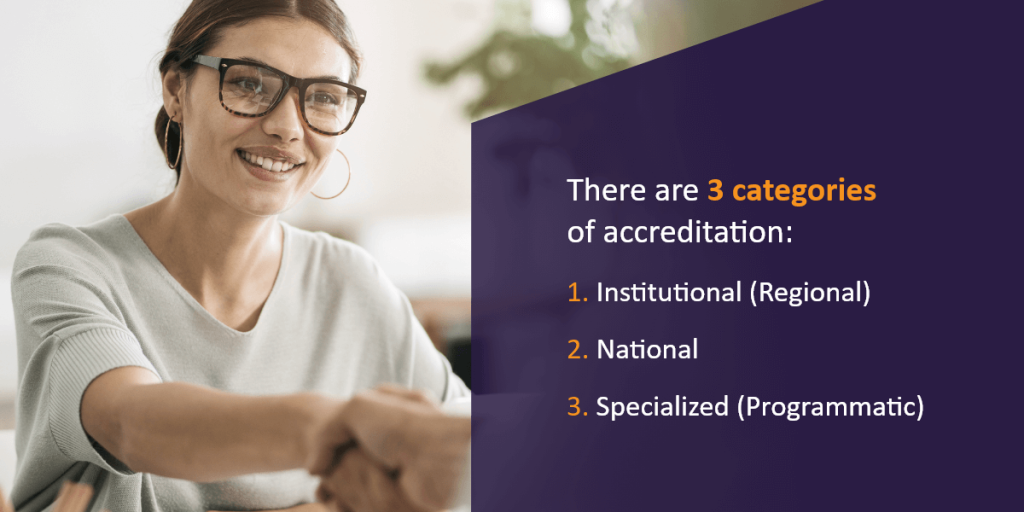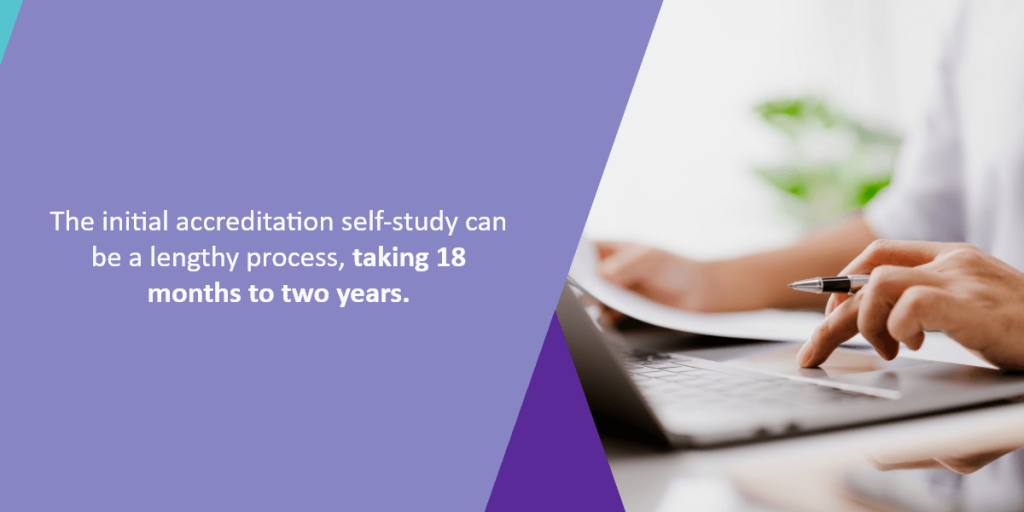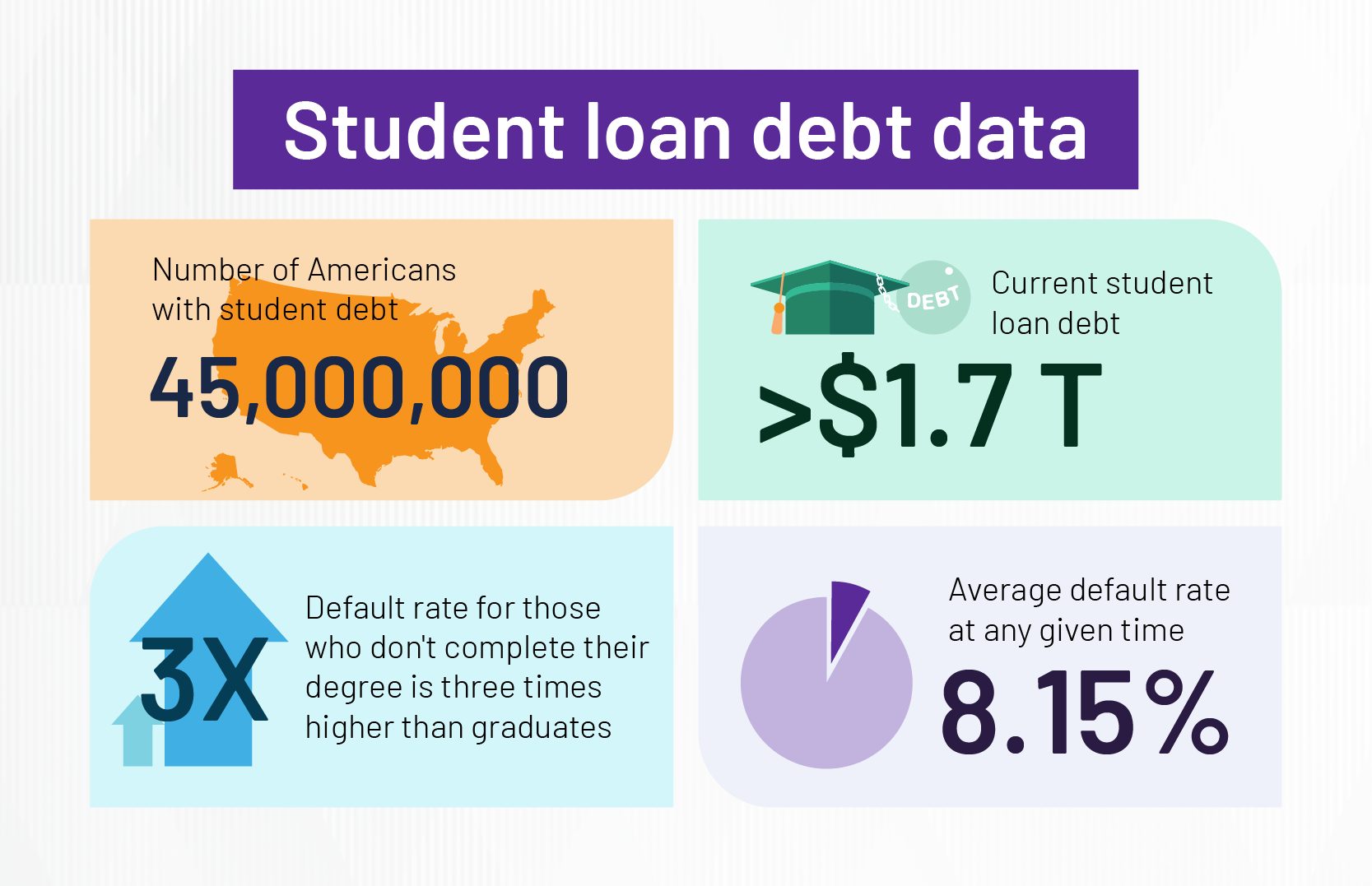
Accreditation is one feature potential students look for in a higher education institution. A school’s accreditation can affect students both while they’re enrolled in a program and after they complete it. Accreditation can affect what types of financial aid the school offers. It can also determine whether an employer will provide tuition reimbursement.
Accreditation is worth pursuing, given that schools and programs typically attract more students than unaccredited ones. However, the process isn’t over once your institution earns accreditation. Accreditation is ongoing, and many agencies require monitoring and self-study evaluations from time to time.
How often you need to submit a self-study will depend on the accrediting agency and the type of accreditation you’ve earned.
What Is an Accreditation Self-Study?

During an accreditation self-study, an institution or program examines its structure, evaluates its effectiveness, and makes a note of strengths and weaknesses. It then puts together a plan to make improvements or modifications as needed. A self-study is necessary at the start of the accreditation process and throughout the review and monitoring process.
Assessing the institution’s compliance with accreditation standards is part of the self-study process. You should also measure the effectiveness of meeting thresholds and evaluate the appropriateness of the program’s goals.
After completing a self-study for accreditation, an institution or program will need to put together a self-study report and submit it to the accrediting association.
What Are the Different Types of Accreditation?
Accreditation is entirely voluntary in the U.S. However, a lack of accreditation can disqualify your students from federal or state financial aid programs, limiting their options to pay for school. Employers might also not accept degrees or certificates from unaccredited schools.
If your institution decides to pursue accreditation, the programs you offer will determine the type of accreditation you receive. There are three categories of accreditation:

- Institutional (Regional): Regional accreditation is generally considered the most prestigious type of accreditation. It’s usually given to schools that are non-profit or operated by the state. College credits transfer easily between schools with regional accreditation. In the U.S., there are seven regional agencies responsible for evaluating the schools within their geographic area.
- National: National accreditation is for schools that train people in trades or vocational occupations. Many nationally accredited schools are for-profit and often prepare students for specific careers. A student can transfer credits from a regionally or nationally accredited school to a nationally accredited one. However, the reverse usually isn’t possible. Ten national accreditation agencies in the U.S. evaluate schools and training programs focused on specific subjects.
- Specialized (Programmatic ): Also known as programmatic accreditation, specialized accreditation focuses on academic programs rather than the entire institution. Specialized accreditation agencies typically evaluate a single type of program at the national level. Examples include agencies that accredit medical or business programs.
What Are Accrediting Agencies?
Accrediting agencies in the U.S. are responsible for setting standards, reviewing candidates for accreditation, and making a final judgment about a candidate’s accreditation status. The U.S. Department of Education (USDE), the Council for Higher Education Accreditation (CHEA), or both must recognize an agency for it to offer legitimate accreditation.
Both the USDE and CHEA have strict requirements for recognizing accrediting agencies. Schools that provide access to federal financial aid must receive their accreditation from an agency recognized by the USDE.
The regional accrediting agencies that both USDE and CHEA recognize are:
- Accrediting Commission for Community and Junior Colleges (Western Association of Schools and Colleges)
- Senior College and University Commission (Western Association of Schools and Colleges)
- Higher Learning Commission
- Middle States Commission on Higher Education
- New England Commission of Higher Education
- Northwest Commission on Colleges and Universities
- Southern Association of Colleges and Schools Commission on Colleges
USDE and CHEA both also recognize these national accrediting agencies:
- Association of Advanced Rabbinical and Talmudic Schools (AARTS)
- Association for Biblical Higher Education Commission on Accreditation
- Commission on Accrediting of the Association of Theological Schools
- Transnational Association of Christian Colleges and Schools Accreditation Commission
- Distance Education Accrediting Commission
The following national accrediting agencies are recognized by the USDE but not CHEA:
- Association of Institutions of Jewish Studies
- Accrediting Council for Continuing Education and Training
- Accrediting Bureau of Health Education Schools
- Accrediting Commission of Career Schools and Colleges
- Council on Occupational Education
- Accrediting Council for Independent Colleges and Schools
- National Accrediting Commission of Career Arts and Sciences, Inc.
Additionally, there is a long list of specialized accreditation agencies recognized by either USDE, CHEA, or both.
When Do You Need to Submit a Self-Study Report for Accreditation?

The initial accreditation self-study can be a lengthy process, taking 18 months to two years. A self-study report is also typically part of the monitoring and reevaluation process after you earn your accreditation.
Each accrediting agency has its own rules and requirements for submitting a self-study report. Regardless of which type of accreditation your institution or program is pursuing, however, you’ll need to conduct a self-study and submit a report before agency evaluators perform a site visit.
Your accrediting agency’s requirements will determine the submission of your self-study report. For example, the Middle States Commission on Higher Education requires self-studies every eight years. The New England Commission of Higher Education requires an interim five-year report. The Northwest Commission on Colleges and Universities requires self-study reports after years one, three, and seven.
How to Navigate the Accreditation Self-Study Process
The first step to navigating this process is to review your accrediting agency’s standards. These standards will serve as a helpful guide as you move through the self-study. Next, assemble a committee and assign each member a standard to focus on.
Ensure you have as many people involved in the self-study process as possible, drawing on both students and faculty. The more input you have for the study, the more accurate your report will be.
Learn More About Accreditation and Request a Demo

While the self-study process can be complex, it doesn’t have to present too many challenges for an institution. Watermark Planning & Self-Study streamlines the self-study process. Our system lets you easily create or import templates, share assignments, set permissions, and add contributors to narratives.
Getting accredited can help make your institution eligible for federal funding and more attractive to potential students. Request a demo of our Planning & Self-Study solution to see how it can simplify your accreditation process.
©️2024 Watermark Insights, LLC or its affiliates. All Rights Reserved. Other trademarks, including Accreditation trademarks, may be trademarks of their respective owners. This article is for information purposes only. Watermark believes the information in this article is accurate as of its publication date, and the information contained herein is subject to change without notice. Watermark is not affiliated with the Accreditor and the Accreditor did not participate in the creation of this report. Watermark makes no warranties, express or implied, in this report.















































































































































































































































































































































































































